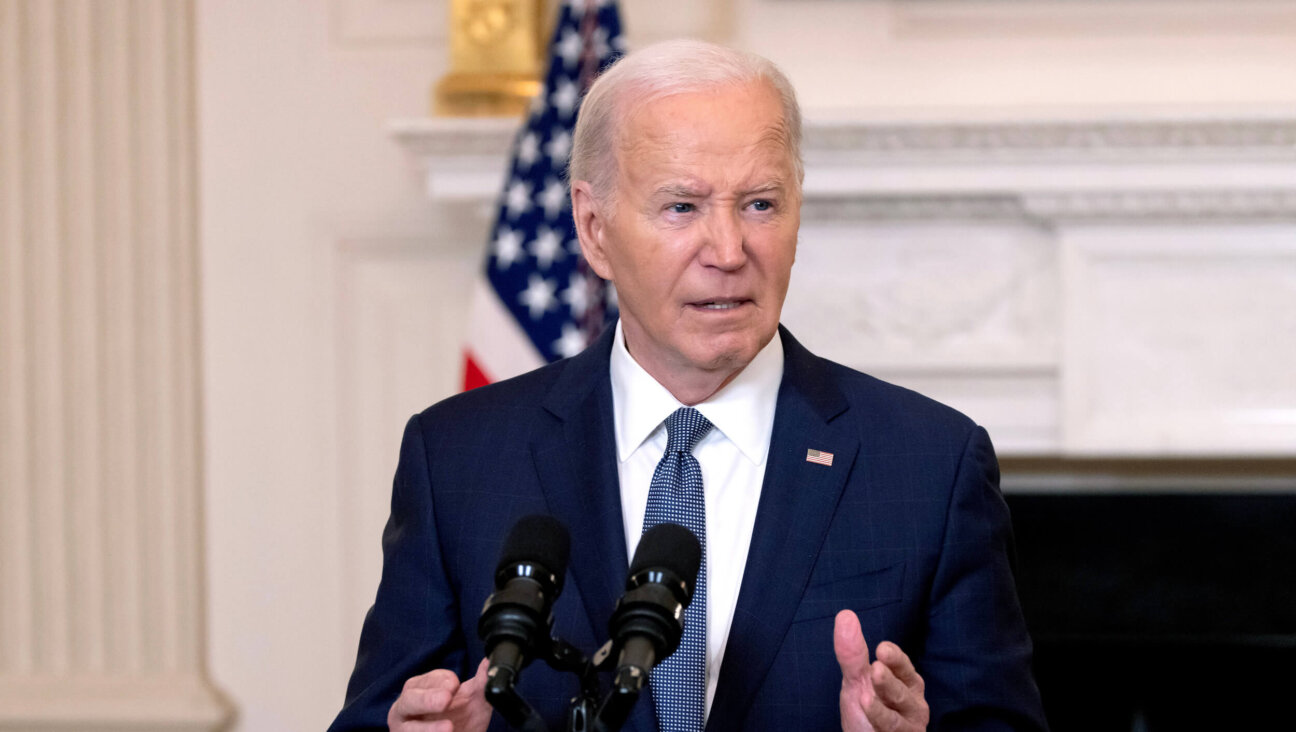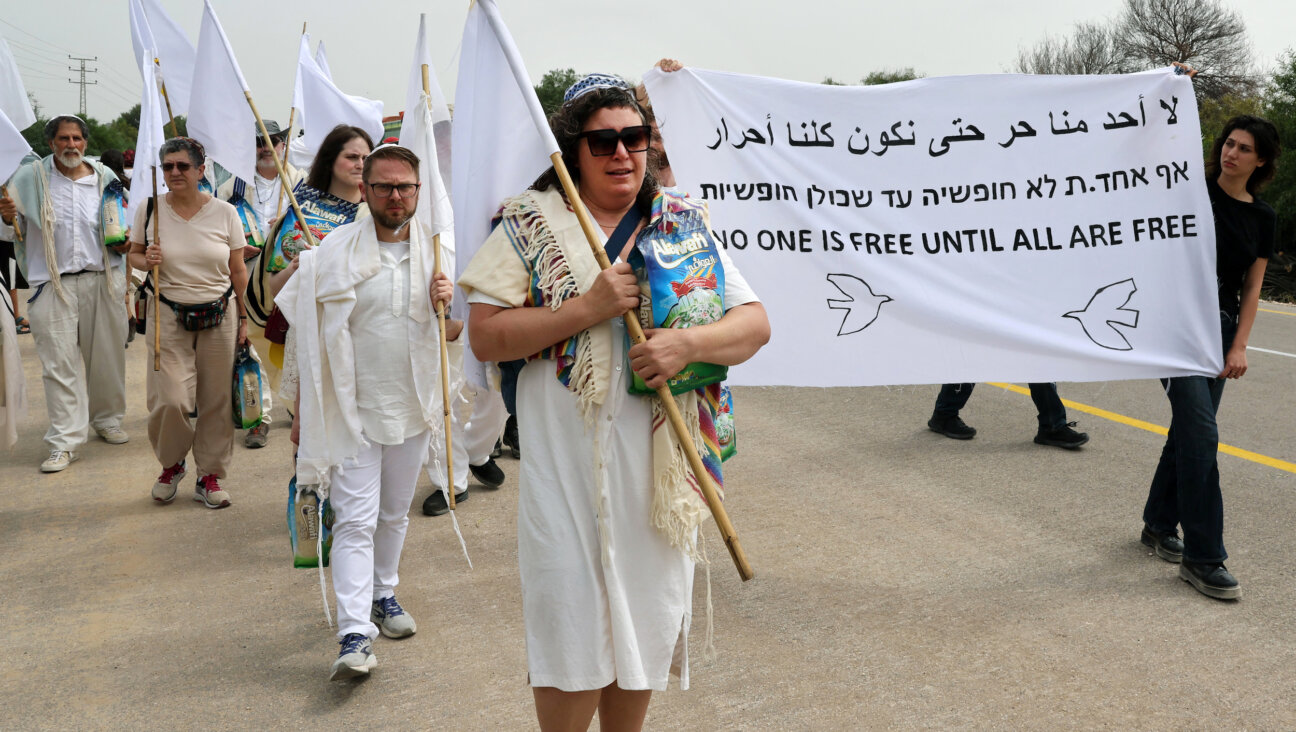My Daughter’s Bat Mitzvah Lesson
A fortnight ago, my 13-year-old daughter Isabel staged the biggest rebellion in her life: She celebrated her bat mitzvah. In receiving an aliyah and reading from the Torah like any of her male Jewish peers, Isabel put on a demonstration of equality that, at least in this proud father’s eyes, may help make Vienna’s small Jewish community a bit more tolerant and open.
What would be seen as a normal and joyful celebration in the United States and in many other countries is still an audacious act of defiance in Austria.
Here, like in most other Jewish communities in continental Europe, the pre-Holocaust tradition of large Reform communities has all but been lost. Liberal congregations are struggling on the margins of Jewish society and are shunned by traditional Jews, and most Orthodox bat mitzvah celebrations consist of some prayers and a big party, but certainly no Torah reading.
The allegiance of Austrian Jews to Orthodoxy does not reflect a special religiosity. Most Jews in Vienna, Frankfurt or Berlin do not keep kosher or observe Shabbat. Many only enter synagogue twice a year, for Rosh Hashanah and Yom Kippur. But on these occasions, they insist that rites and prayers have to be performed the way they were performed by their parents and grandparents — that is, with women sitting separately, usually off on a balcony.
Most affiliated Austrian and German Jews look with incomprehension and even disdain at the efforts of liberal Jews to introduce gender equality and other modern elements into their religious life. They are aware that most American Jews are members in non-Orthodox synagogues, but on their own turf, they see progressive Judaism as a form of sacrilege.
My daughter was not alone in her religious endeavor. When I was growing up among the 8,000 or so Jews who live in Vienna, my family attended the main Orthodox temple. But during my studies at Princeton University, I got to know and love Conservative services. My parents were active in Vienna’s small liberal congregation, Or Chadash, since its establishment in 1990.
Most of its other members are either temporary residents from the United States, local Jews with a gentile spouse who feel isolated in the Orthodox community, or converts who did not feel welcomed by any of the Orthodox rabbis and instead chose a liberal path. For my family and me, the chance to sit together at services and for every female member to be called up to the Torah has been the main attraction of that special congregation.
So when the time of Isabel’s bat mitzvah approached, we supported her fully and cheered her on when she decided to go through all the learning and preparing that an aliyah requires. When it was done, she self-confidently told the audience of roughly 250 — many of whom saw a female at the Torah for the first time in their lives: “We should change little in Judaism, only what obviously needs to be changed. And that men and women should be equal is obvious to me.”
Fortunately, Vienna’s liberal and mainstream Orthodox Jews have found a way to coexist, thanks in part to an open-minded chief rabbi and to a pragmatic president of the organized Jewish community. Or Chadash is financially independent, but the synagogue is situated in a building belonging to the organized Jewish community, the Israelitische Kultusgemeinde.
There are no major conflicts, but there is also little interaction. And as the Kultusgemeinde continues to refuse to accept liberal conversions conducted by Or Chadash rabbis, a wedge between the two groups is growing.
In Germany, a conflict over state subsidies to Jewish institutions that broke out several years ago between the community’s official representative body, the Central Council of Jews in Germany, and the Union of Progressive Jews was quickly resolved. But as Jewish life all over Europe is moving in a more religious, and in some cases fundamentalist, direction, tolerance seems to be waning.
At Jewish functions, the separation of men and women is becoming increasingly common. The same Jewish leaders who warn against the rise of Islamic radicalism sometimes attack their fellow Jews with what can only be described as religious zeal because they dare to diverge from the Halacha.
In Austria and Germany today, the fastest growing congregations are those supported by Chabad. Ultra-Orthodox leaders here seem to prefer young Jews abandoning their religion completely rather than seeing them tamper with the teachings of our forefathers.
But as assimilation is spreading also in Europe, there is a growing need for places where Jews feel welcome even if they do not conform to the highest religious standards — because they have one non-Jewish parent, because they have a non-Jewish spouse, because they seek a conversion process that is free of hypocrisy of pledging an Orthodox life, or just because. The reality is, the Vienna community is so small that it cannot afford to lose a single member.
Perhaps after my daughter’s bat mitzvah, a few of our traditional friends will understand the merits of liberal Judaism and accept it as a legitimate form of worship. It would be the greatest bat mitzvah present — not just for my family, but for the community at large.
Eric Frey is managing editor of the Vienna daily Der Standard.























